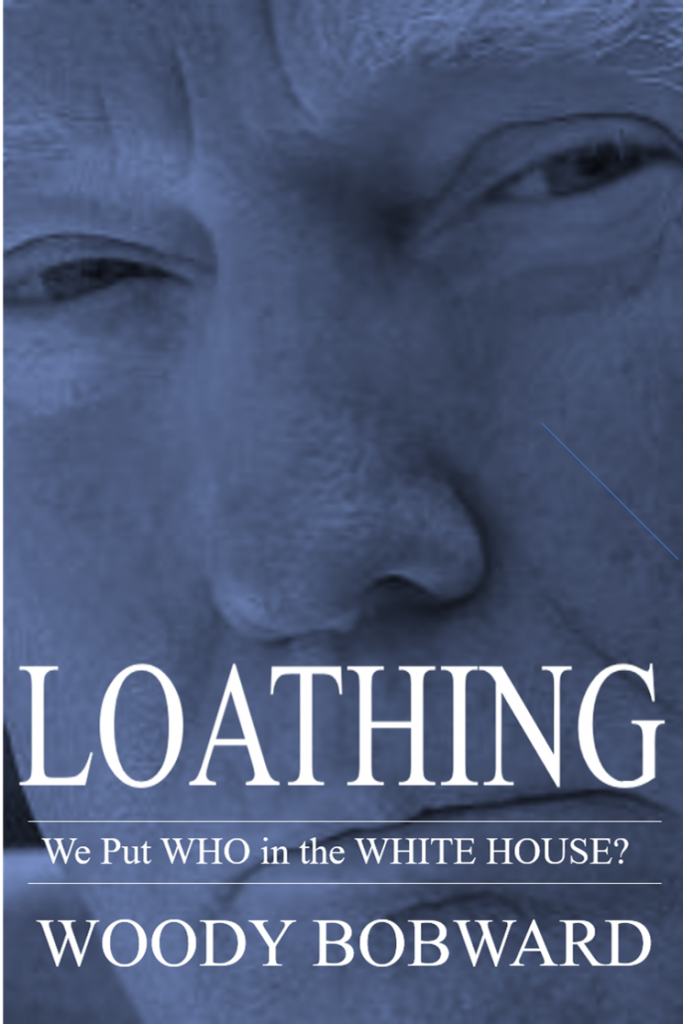 I had taken a loathing to my gentleman at first sight.
I had taken a loathing to my gentleman at first sight.
– Robert Louis Stevenson, Strange Case of Dr. Jekyll and Mr. Hyde
The late Morris Udall, in my opinion the finest representative Arizona has sent to Congress, was also – in everybody’s opinion – one of the funniest individuals to serve in the national legislature. One example is from a piece he wrote for The Washington Post in 1987, wherein he took a playful shot at fellow Arizona Congressman Sam Steiger. “He always makes a good first impression,” said Udall of his colleague. “To detest him, you really have to know him.”
Contrast Udall’s observation with cartoonist Gary Trudeau’s first impression of Donald Trump, which he described in a 2016 interview with The Huffington Post. “My first raw impression?” asked Trudeau. “Biggest. Asshole. Ever. Must draw.” That distinguishes Trump from the late Congressman Steiger. With Trump, you can skip the preliminaries and proceed directly to loathing.
My late buddy Emil Franzi once accused me of suffering from “Trump Derangement Syndrome.” I demurred, assuming he was referring to opposition to Trump’s politics. But my dislike for Trump, like Trudeau’s, predates his presidential campaign. I despised Trump when everybody thought he was a Democrat. I have little regard for phonies, con men and braggarts, and men who break contracts, whether with tradesmen or wives. While I have long held Trump in low esteem, I never considered him to be dangerous. He was a harmless clown our culture coughed up to keep the tabloids busy. I expected Hillary Clinton to crush him like a dropped French fry, after which he would abandon politics for the friendlier confines of mass media. Then came his ascendancy to the presidency and, for the first time in my life, I was afraid of a clown. Maybe Emil was onto something. Maybe I do have TDS.
How much do I loathe Trump? Let me count the ways.
- He is a racist. In 1973, the Nixon administration’s Justice Department – not known for its aggressive enforcement of civil rights laws – sued Trump and his father for housing discrimination by trying to keep African-Americans from renting in their properties. They settled with the government in 1975 and promised not do it again. There was also a pattern of removing black employees from the premises when Trump visited. “When Donald and Ivana came to the casino, the bosses would order all the black people off the floor,” a former employee told The New Yorker in 2015. “It was the eighties, I was a teen-ager, but I remember it: they put us all in the back.”
- He is a congenital liar. This past summer, Trump averaged 15 lies a day, adding to the thousands of documented lies he has told since his inauguration. As Brian Doyle Murray said in “The Razor’s Edge,” “I hate liars.” More importantly, as the RAND Corporation points out in a recent study, a chronically lying President is a threat to democracy.
- He surrounds himself with people who are sketchy, dishonest, self-dealing and, in some cases, darkly evil. Roy Cohn, Trump’s most influential mentor, fell in the latter category. “Roy was brutal, but he was a very loyal guy,” said Trump in a 2005 interview with Tim O’Brien. “He brutalized for you.” In Trump’s world, brutality in the service of loyalty is no vice. Dishonesty is no disqualifier. Trump, the Grifter-in-Chief, has drawn other grifters like flies to a landfill, people like Tom Price, Scott Pruitt, Paul Manafort, and Michael Cohen. An American Public Media report found half of Trump’s cabinet has engaged in “questionable or unethical conduct.” Incompetence is not a disqualifier either. Exhibit 1: Betsy DeVos, who shows more interest in helping her cronies steal from students than focusing on education.
- He pardoned Sheriff Joe Arpaio.
- He is trying to run the country in the same ramshackle, disorderly way he ran his business. Trump, as a businessman, was known for taking risks, many of which blew up in his face, like his casinos in New Jersey. He escaped consequences for his failures. When he was a young man, he hid behind his father’s wealth; as an adult, he hid behind bankruptcy. He was entitled and could get away with anything. The pain was always visited on somebody else. Now we are all Trump’s “somebody else.”
- As the New York Times’ Tom Friedman commented, Trump’s budgetary strategy seems tantamount to “heating up our economy by burning all the furniture in the house.” His budget provides a sugar high with corporate tax breaks and benefits for the wealthiest, at the expense of an exploded budget deficit and increasing disparity in wealth. He doesn’t care, of course. The consequences will be visited on somebody else.
- He wants to spend at least $13 billion on a Space Force. Perhaps Trump fantasizes himself a corpulent Captain Kirk at the bridge of a gilded Enterprise. If so, indulge his fantasy and let him make history as the first U. S. President launched into Space. (By the way, have I mentioned that my favorite Pink Floyd song is “Set the Controls for the Heart of the Sun?)
I could go on, but if I add another numbered paragraph my computer will barf. My intent in writing this was to provide a counter-point to the Bob Woodward book, Fear. Woodward’s work is a well-reported and carefully crafted historical narrative. My piece is a therapeutic rant, torn from the headlines. It’s healthy to balance a careful work with a rant.
Besides, if you don’t have Fear and “Loathing” in the Trump era, you’re not paying attention.
© 2018 by Mike Tully

Be First to Comment